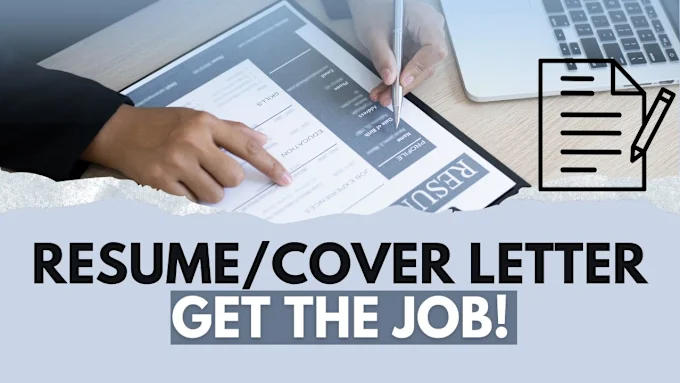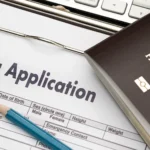In today’s globalized job market, securing a role with an international company requires a tailored approach. While strong qualifications and relevant experience are essential, the presentation of your CV and cover letter can be the deciding factor in landing an interview. Many applicants make common mistakes by not adapting their application materials for different countries, cultures, and industry standards. Here’s a comprehensive guide to making your CV and cover letter stand out for international job applications.
Optimizing your CV and cover letter for international job applications takes time, but it’s worth the effort to make a strong impression. By tailoring your documents to align with the expectations of different countries and industries, you demonstrate professionalism, attention to detail, and a commitment to fitting into a global team.
1. Research the Local Expectations
Every country has unique conventions for job applications. For instance, American resumes tend to be concise (1-2 pages) and focus on quantifiable achievements, while some European countries may expect CVs to include a bit more personal information, such as a photo, age, or even marital status.
Tips:
- Understand Document Length: In North America, 1-2 pages are standard, but in countries like Germany, longer, detailed CVs are acceptable.
- Photo or No Photo?: In some regions (e.g., Germany, France), a photo is often expected, while in others (e.g., the US, UK), it’s best to leave it out due to anti-discrimination policies.
- Personal Details: Research whether to include information like nationality or age, as this can vary widely.
2. Use Industry-Specific Keywords and Phrasing
Many companies use Applicant Tracking Systems (ATS) to screen applications. This software scans CVs and cover letters for specific keywords relevant to the job description. Including the right terminology can increase the chances of your application passing through the initial screening phase.
Tips:
- Study Job Descriptions: Analyze job listings in your target region to identify key terms and phrases used consistently.
- Adapt Job Titles: Job titles vary across regions, so adjust titles to align with international standards or the company’s preferred phrasing.
- Incorporate Action Verbs: Use powerful action verbs like “led,” “developed,” or “optimized” that demonstrate your contributions.
3. Customize Your Cover Letter with a Global Perspective
A cover letter provides the opportunity to explain why you’re an ideal fit for the role and company. For international applications, highlight experiences and skills that show your ability to work in a cross-cultural setting and adapt to different environments.
Tips:
- Show Cultural Awareness: Mention any previous international experience or work with diverse teams to demonstrate that you understand global business dynamics.
- Be Concise and Direct: In many cultures, concise communication is highly valued. Keep your cover letter to one page, focusing on how your experience aligns with the role.
- Address the Company’s Global Goals: If the company operates globally, mention how your skills contribute to its international objectives.
4. Quantify Your Achievements
Regardless of country, employers appreciate specific, measurable accomplishments. Highlighting results not only demonstrates your impact but also makes your experience more universally relatable.
Tips:
- Include Metrics: Rather than saying, “I improved sales,” use specific numbers, like “I increased sales by 25% in one year.”
- Use Percentages and Timeframes: Highlighting growth percentages, cost reductions, or time saved helps quantify your impact.
- Focus on Relevant Accomplishments: Tailor your achievements to match the role’s primary responsibilities and expected outcomes.

5. Be Mindful of Language and Grammar
When applying internationally, language is crucial. If the job is in a country where English is the official language, your CV and cover letter must be error-free and clear. For non-English speaking countries, consider translating your documents professionally.
Tips:
- Use Clear, Concise Language: Avoid idioms, slang, or jargon that may not be understood universally.
- Check for Local Spelling and Grammar: If you’re applying to a British company, for example, use UK English spelling conventions (e.g., “optimise” instead of “optimize”).
- Consider Professional Translation: If you’re applying in a language other than your native one, a professional translation may be beneficial for accuracy.
6. Adopt an International Format and Structure
An international-standard CV is generally well-organized and easy to navigate. Use a clean, professional format, ensuring that sections are clearly labeled and easy to follow.
Tips:
- Use Standard Headers: Common headers like “Professional Experience,” “Education,” and “Skills” are widely recognized.
- Reverse Chronological Order: This format is globally accepted, listing your most recent experience first.
- Readable Font and Layout: Choose a clean, professional font like Arial or Calibri, and keep formatting consistent.
7. Showcase Language and Cultural Skills
If you’re bilingual or have experience in other cultures, make sure this is highlighted on your CV. Employers looking for international talent often value language skills and cultural adaptability.
Tips:
- Language Proficiency: Clearly state your level of proficiency in any languages. Use standard terms like “fluent,” “conversational,” or “native speaker.”
- Cultural Adaptability: Mention specific experiences working with teams from other countries or adapting to a different work culture.
8. Provide International References
If possible, include references who can speak to your ability to work in a global context. These could be previous managers or colleagues from different countries who can attest to your adaptability and communication skills.
Tips:
- Mention Reference Locations: Including the country for each reference can subtly demonstrate your international experience.
- Verify Contact Information: Ensure that contact details for international references are up-to-date and accurate.
- Check Cultural Norms: Some countries may expect references upfront, while others may ask for them only if needed.
9. Add a Cover Letter that Highlights Your Motivation
Companies value applicants who show genuine interest. A cover letter is your chance to explain why you’re specifically interested in this company and region, and how you’re prepared to bring value to their team.
Tips:
- Demonstrate Local Knowledge: Mention what attracts you to the company’s location, market, or mission.
- Express Adaptability: State that you are prepared to adapt and thrive in a new environment.
- Be Sincere: Be genuine in explaining why the opportunity appeals to you.





